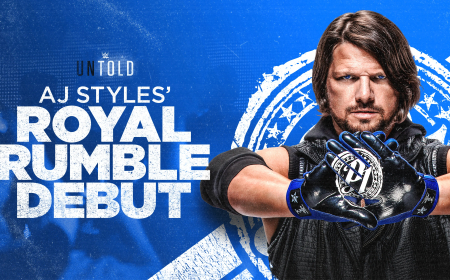Genius: Unveiling the Nature, Types, and Cultivation of Extraordinary Minds

Introduction
The Enigma of Genius
The term “genius” has intrigued humanity for centuries. It is a word that evokes admiration, awe, and sometimes envy. Whether it’s Leonardo da Vinci’s artistic mastery, Albert Einstein’s scientific revolution, or Steve Jobs’ technological innovation, geniuses shape history and redefine what’s possible. But what exactly is genius? Is it an inborn trait, a result of intense dedication, or a combination of both?
In this blog post, we will explore the multifaceted concept of genius—its origins, traits, categories, notable examples, and how it can be recognized or even nurtured. By dissecting the idea of genius, we aim to provide a deeper understanding of how these exceptional individuals influence society and what lessons we can draw from their brilliance.
Defining Genius – A Complex and Evolving Concept
Historical Perspective on Genius
Historically, genius was perceived as a divine gift. The ancient Romans believed in a personal guiding spirit—called a "genius"—assigned at birth. Over time, the term evolved from spiritual guidance to signify exceptional intellectual and creative abilities.
By the Enlightenment era, genius was associated with individuals possessing revolutionary ideas and talents, often disrupting traditional norms. Modern psychology further refined the concept, associating it with high IQ, original thought, and unmatched innovation.
Evolution of the Concept of Genius
| Time Period | Interpretation of Genius | Notable Example |
|---|---|---|
| Ancient Rome | Guardian spirit guiding creativity | Philosophers like Seneca |
| Renaissance | Divine inspiration in the arts and science | Leonardo da Vinci |
| Enlightenment | Intellectual brilliance and original thought | Isaac Newton |
| Modern Psychology | High IQ, creativity, and domain-specific skills | Albert Einstein, Mozart |
Characteristics and Types of Genius
Core Traits of a Genius Mind
While intelligence is a common denominator, genius transcends mere IQ. Geniuses exhibit distinct cognitive and behavioral traits that differentiate them from high achievers.
Key Characteristics of Geniuses:
-
High cognitive ability (often IQ above 140)
-
Unconventional thinking and creativity
-
Persistence and curiosity
-
Sensitivity to patterns
-
Desire for self-expression
-
Independent mindset
It’s important to note that many geniuses also face social or emotional struggles due to their intense focus and differing perception of the world.
Types of Genius
Genius manifests in various forms, often aligned with specific domains:
a. Intellectual Genius
Individuals with groundbreaking contributions to science, philosophy, or mathematics.
-
Example: Albert Einstein, Marie Curie
b. Creative Genius
Masters of the arts—painters, musicians, writers—whose works transform culture.
-
Example: William Shakespeare, Ludwig van Beethoven
c. Technological Genius
Innovators who leverage logic and creativity to solve practical problems.
-
Example: Nikola Tesla, Steve Jobs
d. Emotional or Social Genius
Those with an uncanny ability to understand and influence human behavior.
Different Types of Genius with Examples
-
Scientific Genius – Isaac Newton, Galileo Galilei
-
Artistic Genius – Pablo Picasso, Vincent van Gogh
-
Musical Genius – Mozart, Freddie Mercury
-
Literary Genius – Leo Tolstoy, Maya Angelou
-
Philosophical Genius – Socrates, Friedrich Nietzsche
-
Entrepreneurial Genius – Elon Musk, Jeff Bezos
-
Mathematical Genius – Srinivasa Ramanujan, Ada Lovelace
Genius in the Modern World – Nature, Nurture, and Neuroscience
Is Genius Born or Made?
The nature vs. nurture debate is central to understanding genius. While genetics provide a cognitive baseline, environment, education, and persistence play a crucial role.
Modern research suggests that a combination of genetic predisposition, early exposure, and deliberate practice (as per Malcolm Gladwell’s “10,000-Hour Rule”) contributes to genius-level performance.
Factors Influencing Genius Development
| Factor | Description |
|---|---|
| Genetic Potential | High cognitive ability, brain structure |
| Early Stimulation | Childhood exposure to arts, math, or logic |
| Passion and Curiosity | Intrinsic motivation to explore and solve problems |
| Mentorship | Guidance from teachers, parents, or role models |
| Discipline and Practice | Long-term commitment to mastery |
| Socioeconomic Factors | Access to resources, education, and opportunity |
Neuroscience and Genius
Brain imaging studies reveal that geniuses often show enhanced activity in the prefrontal cortex (planning and decision-making) and parietal lobes (logic and mathematics). Moreover, greater connectivity between brain regions is linked to faster and more complex thought patterns.
However, genius can come with neurological trade-offs. Some studies associate creative genius with bipolar disorder, autism spectrum, or ADHD, suggesting a complex relationship between cognitive brilliance and mental health.
Recognizing Genius – In Schools, Workplaces, and Society
Genius in Education
Gifted children often show signs of exceptional ability early, such as advanced language skills, problem-solving capacity, and strong memory retention. However, traditional education systems may fail to nurture these talents due to rigid curriculums and standardized testing.
Encouraging Genius in Education Includes:
-
Flexible learning environments
-
Mentorship opportunities
-
Project-based learning
-
Emotional and psychological support
Signs of Genius in Children
-
Exceptional memory and early reading ability
-
Intense focus on specific interests
-
Advanced problem-solving skills
-
Heightened emotional sensitivity
-
Unusual humor or perspective
Genius at the Workplace
In professional settings, geniuses often lead innovation but may clash with conventional structures. Organizations that embrace divergent thinking, experimentation, and autonomy tend to harness their potential best.
Strategies for Cultivating Genius at Work:
-
Create think tanks or R&D departments
-
Promote creative freedom
-
Encourage interdisciplinary collaboration
-
Recognize non-traditional problem-solvers
Challenges Faced by Geniuses
Despite their gifts, many geniuses face significant struggles:
-
Social Isolation: Difficulty relating to peers due to unique perspectives
-
Mental Health: Heightened sensitivity can lead to depression or anxiety
-
Perfectionism: High standards may result in self-criticism or burnout
-
Misunderstanding: Society may misinterpret eccentric behavior as oddness
Support systems, mental health resources, and inclusive environments are essential to help geniuses thrive.
Celebrating Genius in Popular Culture and Media
From films like A Beautiful Mind and Good Will Hunting to documentaries on Tesla and Hawking, popular culture celebrates genius as both miraculous and flawed. While these portrayals glamorize intellectual brilliance, they also reveal the personal sacrifices geniuses often endure.
Iconic Portrayals of Genius in Pop Culture
| Media Title | Genius Character / Subject | Type of Genius Depicted |
|---|---|---|
| A Beautiful Mind | John Nash (Mathematics) | Mathematical |
| The Imitation Game | Alan Turing (Computer Science) | Technological |
| Amadeus | Wolfgang Amadeus Mozart | Musical |
| Steve Jobs (Film) | Steve Jobs | Entrepreneurial |
| The Theory of Everything | Stephen Hawking | Scientific |
Conclusion:
Genius as a Catalyst for Human Progress
Genius is not merely about intelligence—it is a unique convergence of vision, discipline, creativity, and persistence. Throughout history, geniuses have driven revolutions in thought, technology, art, and human values. They are the architects of the future and the torchbearers of innovation.
While not everyone may be a genius in the traditional sense, the potential for brilliance exists in every individual. Through supportive environments, lifelong learning, and curiosity, we can all tap into our personal zones of excellence and perhaps, our own form of genius.





























